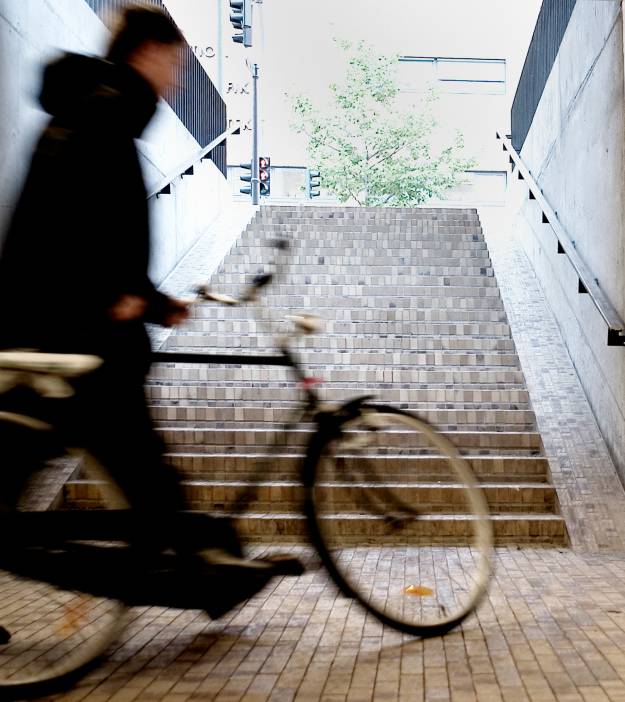British Cycling was in attendance at the fourth of the conferences, which took place in Manchester Town Hall yesterday, featuring a day of speeches and interactive workshops aiming to show how Dutch politicians and planners have succeeded in building high cycling levels with public support and consider how this can be achieved in Manchester.
Speakers at the conference included public health consultant Dr Nick Cavill and a number of Dutch transport planning experts including Marjolein de Lange, leader of the Dutch Embassy’s ‘Think Bike’ project together and Wim van der Wijk, a traffic engineer at Royal Haskoning DHV.
The day began with a welcome from Dutch ambassador Margriet Leemhuis before moving on to an examination of costs and benefits of cycling with Kees van Ommeren from Decisio and Dr Nick Cavill.
Dutch Cycling ambassador Marjolein de Lange went on to present the results of the Netherlands’ Think Bike workshop. De Lange cited Manchester's Chester Road, a thoroughfare in need of 'human-scale' redesign with the addition of continuous bicycle facilities. "In the Netherlands the best streets commercially, with busy shops are the ones with lots of people, lots of bikes," said de Lange.
There followed a presentation entitled ‘What is a Cycling Culture & How do we get there?’ presented by Wim Bot of the Dutch Cyclists Union and Professor John Whitelegg from the University of York’s Stockholm Environment Institute who said, "Making cycling central to our cities' transport systems would transform them as radically as clean water and sewerage did in the 19th Century," later continuing that in part the importance of purpose built cycling infrastructure is that it is a physical representation of political support for cycling.
A Q&A session with the morning's speakers revealed a great deal of consensus among speakers; that building appropriate cycling infrastructure is the key to transforming transport to promote cycling.
"...the Dutch made a conscious political decision in the 1970s to reverse the decline they were experiencing in cycling by introducing a raft of cycling friendly policies... ...That can be replicated in this country with the necessary political will."
Martin Gibbs
The afternoon saw delegates break out into workshop groups looking at a number of topics including Dutch street design techniques, residential street design, the health and economic benefits of cycling, integrated transport, cycle parking and cycling’s role in creating social cohesion.
Representatives from British Cycling attended the conference and Policy and Legal Affairs Director Martin Gibbs said, “It’s great to see all this experience being shared and I know that Manchester is ambitious and wants to grow the levels of cycling here where British Cycling is based, which we look forward to being a part of.
"It’s important to remember that the Dutch made a conscious political decision in the 1970s to reverse the decline they were experiencing in cycling by introducing a raft of cycling friendly policies, from an extensive programme of cycle path construction to lower speed limits. That can be replicated in this country with the necessary political will."












